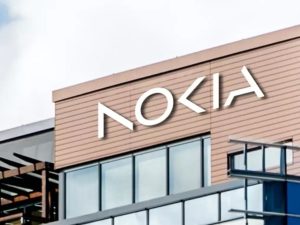- Private networks are best defined as those networks that are not typically utilised by consumers (for mobile voice and data services) but use network elements and resources to provide dedicated secure services to private enterprises such as factories, plants, large campuses, ports and airports.
- The following page provides an overview of 5G private networks followed by a searchable table of major private network projects in the EU.
5G private networks
The section on 5G private networks focuses on the EU countries that are deploying commercial private 5G networks. Private networks are best defined as those networks that are not typically utilised by consumers (for mobile voice and data services) but use network elements and resources to provide dedicated secure services to private enterprises such as factories, plants, large campuses, ports and airports. The architecture models can vary from completely private networks (all network elements owned and operated by the enterprise), through to a hybrid approach whereby a managed service provider or public operators provide access to their network infrastructure assets and/or spectrum. The diagram below has been extracted from the 5G Alliance for Connected Industries and Automation (5G-ACIA) which shows the different private cellular network architecture options that can be implemented in non-public network scenarios (primarily aimed at industrial networks).
![]](https://5gobservatory.eu/wp-content/uploads/2022/03/Private-celluar-network-architecutre-models-1024x1033.png)
The roll out of private 5G networks is still in a relatively early growth phase that will be an important contributor to the continued productivity of Member States and adoption of new technologies for enterprises that will support the ongoing development of the 5G ecosystem.
There is particular interest by the Commission on which spectrum bands are used across different Member States for the deployment of private networks, noting that currently a limited set of frequencies are being used in some Member States. Notably, the decision by the regulator in Germany to allocate a dedicated 100 MHz portion in the 3.7 -3.8 GHz range for use by verticals enabling so-called 5G campus networks.
An update of the status and progress of private 5G network deployments is given for each Member State using the following structure:
- Identifies each private network per country based on published information
- Identifies which companies are deploying private networks including operators andvendors involved
- Identifies the sectors in which private 5G networks are being deployed
- The spectrum band being used where information is available.
The list of private 5G networks in the table below is based on research of publicly available information. It is a non-exhaustive list and the Observatory team endeavour to obtain as much information on published private 5G network deployments as possible.
| Date | Country | Company /Entity | Operator | Equipment vendor | Overview | Source | Last updated |
|---|---|---|---|---|---|---|---|
| 2020 | Austria | Automotive manufacturer Magna Steyr | A1 Austria | Nokia | In Austria, there was a deal struck by A1 and Nokia to provide wireless private networks to enterprises. The partnership has already deployed private 5G networks at various locations and customers including at the automotive manufacturer site Magna Steyr, and at science and technology park in Klagenfurt south Austria. It is worth noting that, the spectrum band being used for its private networks has not been published but A1 holds 140 MHz of spectrum in the 3.4 – 3.8 GHz band which uses for 5G network and capacity expansion of the existing mobile network. | https://www.lightreading.com/private-networks/a1-austria-hands-private-5g-role-to-nokia/d/d-id/765284 | 17/03/2022 |
| 2020 | Austria | 5G playground Carinthia | A1 Austria | Nokia | In Austria, there was a deal struck by A1 and Nokia to provide wireless private networks to enterprises. The partnership has already deployed private 5G networks at various locations and customers including at the automotive manufacturer site Magna Steyr, and at science and technology park in Klagenfurt south Austria. It is worth noting that, the spectrum band being used for its private networks has not been published but A1 holds 140 MHz of spectrum in the 3.4 – 3.8 GHz band which uses for 5G network and capacity expansion of the existing mobile network. | https://www.lightreading.com/private-networks/a1-austria-hands-private-5g-role-to-nokia/d/d-id/765284 | 17/03/2022 |
| 2020 | Austria | Vienna airport | A1 Austria | Nokia | In Austria, there was a deal struck by A1 and Nokia to provide wireless private networks to enterprises. The partnership has already deployed private 5G networks at various locations and customers including at the automotive manufacturer site Magna Steyr, and at science and technology park in Klagenfurt south Austria. It is worth noting that, the spectrum band being used for its private networks has not been published but A1 holds 140 MHz of spectrum in the 3.4 – 3.8 GHz band which uses for 5G network and capacity expansion of the existing mobile network. | https://enterpriseiotinsights.com/20201109/channels/news/a1-and-nokia-formalise-private-5g-partnership-after-trio-of-austria-installs | 17/03/2022 |
| 2020 | Austria | Siemens renewable energy microgrid | A1 Austria | Nokia | In Austria, there was a deal struck by A1 and Nokia to provide wireless private networks to enterprises. The partnership has already deployed private 5G networks at various locations and customers including at the automotive manufacturer site Magna Steyr, and at science and technology park in Klagenfurt south Austria. It is worth noting that, the spectrum band being used for its private networks has not been published but A1 holds 140 MHz of spectrum in the 3.4 – 3.8 GHz band which uses for 5G network and capacity expansion of the existing mobile network. | https://www.nokia.com/about-us/news/releases/2020/11/25/nokia-a1-provide-private-wireless-connectivity-for-siemens-renewable-energy-microgrid/ | 17/03/2022 |
| 2020 | Belgium | Port of Antwerp | Proximus | As introduced in 2.1.4.4, there are a number of private 5G network deployments in Belgium that are being delivered by a number of different telecommunications players. Most notably, which has deployed a private 5G network at the Port of Antwerp to support a range of different operations from tugboat connectivity to drone deployments and surveillance. Proximus has secured spectrum in the 3.4 – 3.8 GHz band which it can use for its private 5G network deployments. | https://enterpriseiotinsights.com/20200207/5g/proximus-deploy-private-5g-network-belgium-port-antwerpen | 17/03/2022 | |
| 2020 | Belgium | Port of Zeebrugge | Nokia and Citymesh | 5G-ready private wireless connectivity. Connectivity to more than 100 endpoints across the entire port operations. | https://www.nokia.com/about-us/news/releases/2020/03/24/nokia-completes-phase-one-of-belgian-port-of-zeebrugge-digitalization-with-5g-ready-private-wireless-network/ | 17/03/2022 | |
| 2020 | Belgium | Brussels Airport | Nokia and Citymesh | The network commenced commercial operation in mid-2020 and is used for a range of applications including Beyond Visual Line of Sight drone operations. Citymesh has spectrum rights in the 3410 – 3510 MHz band | https://enterpriseiotinsights.com/20210406/channels/news/citymesh-runs-drones-tests-on-private-5g-at-brussels-airport | 17/03/2022 | |
| 2023 | Belgium | Port of Antwerp | Citymesh | New and separate private network dedicated to a facility within the Port to support new security requirements and Industry 4.0. the apps and devices include push-to-talk comms, security camera streams, and “logistics processes”; and machine vision apps to live-monitor plant equipment | https://www.rcrwireless.com/20230317/private-networks/basf-taps-citymesh-for-first-private-5g-as-belgium-limbers-up-for-industry-4-0 | 25/03/2023 | |
| 2023 | Belgium | Nationwide Emergency drone network | Citymesh | Nokia | Belgium's B2B operator has joined forces with Nokia to deploy a nationwide drone network to support PPDR and emergency services. | https://telecoms.com/521721/belgiums-citymesh-taps-nokia-for-nationwide-drone-network/ | 04/09/2023 |
| 2023 | Belgium | CONNECTNOW (City of Wavre) | Citymesh | Under the CONNECTNOW project, the city of Wavre will deploy a private 5G network focus on bolstering local socio-economic factors whilst promoting sustainable development. It will support a wide range of use cases and applications, ranging from manufacturing/logistics, to | https://www.rcrwireless.com/20230403/internet-of-things-4/citymesh-heads-e3-9m-eu-smart-city-project-with-5g-build-in-belgium | 04/09/2023 | |
| 2024 | Belgium | AZ Groeninge Hospital in Kortrijk | Proximus | Pilot project that involves testing 5G applications in a real hospital environment. | https://www.proximus.com/news/2024/20240129-5g-az-groeninge.html#:~:text=2024%20Press%20Release-,az%20groeninge%20becomes%20the%20first%20hospital%20in%20the%20Benelux%20region,in%20a%20real%20hospital%20environment. | 01/05/2024 | |
| 2022 | Croatia | 5G private network solutions | Croatian Telecom | FER | Private 5G network solutions to be deployed in Rijeka, Split and Osijek to support solution in automation, robotics, edge and fog computing | https://www.total-croatia-news.com/business/41694-croatian-telecom | 17/03/2022 |
| 2022 | Croatia | AD Plastik | Nokia and OIV Digital Signals and Networks | This deployment is to provide Industrial IoT to support digitialisation and automation inside its factories in Croatia. It will use Nokia's Digital Automation Cloud (DAC) application platform, comprising a cloud-based private 5G system, plus edge compute functions, and number of Nokia-provided and third-party industrial IoT applications | https://enterpriseiotinsights.com/20220126/channels/news/nokia-supplies-private-5g-system-to-automotive-manufacturer-ad-plastik-in-croatia | 21/04/2022 | |
| 2023 | Croatia | Klimaoprema (AC equipment manufacturer) | OiV | State-owned telecoms provider OiV nnounced that it started a trial of a private 5G network at the manufacturing facility of Klimaoprema, a company specialising in ventilation and air-conditioning equipment, located in the eastern town of Nova Gradiska. | https://seenews.com/news/croatias-oiv-launches-trial-of-klimaoprema-private-5g-network-823549 | 04/09/2023 | |
| 2023 | Croatia | Zagreb Faculty of Mechanical Engineering and Shipbuilding (FSB) | Hrvatski Telekom | Croatian operator Hrvatski Telekom will soon set up a private 5G campus network in the research and development laboratory of the FSB. | https://www.telecompaper.com/news/hrvatski-telekom-to-set-up-private-5g-network-at-zagreb-faculty--1456311 | 04/09/2023 | |
| 2021 | Czech Republic | 5G Campus network University of Ostrava Czech Institute of Informatics, Robotics and Cybernetics (CIIRC CVUT) | T-Mobile | Ericsson | 5G campus network will enable scientists, students and industrial companies to develop innovative solutions for smart manufacturing and Industry 4.0. | https://www.vsb.cz/en/news-detail/?reportId=40473&linkBack=%2Fen%2Findex.html | 17/03/2022 |
| 2021 | Czech Republic | 5G Campus network University of Prague (planned) | T-Mobile | Ericsson | 5G standalone campus network at the Czech University of Agriculture to focus on IoT connectivity with an agriculture focus | https://www.world-today-news.com/the-czech-university-of-agriculture-will-build-a-5g-network-deploy-thousands-of-sensors-in-a-smart-landscape/ | 17/03/2022 |
| 2022 | Czech Republic | 5G StandAlone network at Skoda factory | Vodafone | Nokia | 5G standalone network to be deployed by IT department with support from Vodafone and Nokia for the smart factory to support automation but also for automated car parking | https://telecoms.com/516116/voda-gives-skoda-its-very-own-private-5g-sa-network/ | 25/07/2022 |
| 2023 | Czech Republic | 5G StandAlone network at Toyota factory | T-Mobile | ServisControl | Private 5G test network at Toyota facility in Kolin to test specific automotive applications and test autonomous trucks | https://www.telecompaper.com/news/t-mobile-czechia-launches-private-5g-network-for-toyota-plant--1447179 | 25/03/2023 |
| 2023 | Czech Republic | Continental (automotive supplier) | T-Mobile | T-Mobile deployed a private 5G network in Continental's 5,000 sq meter display solutions plant in Brandýs nad Labem in the Czech Republic to meet the supplier's production needs, with the primary aim of enhancing communication among staff, machinery, and various devices like sensors, production robots, and autonomous transport vehicles. | https://www.eenewseurope.com/en/first-continental-plant-in-europe-equipped-with-private-5g-network/ | 04/09/2023 | |
| 2021 | Denmark | Grundfos (pump manufacturer). | TDC NET | Ericsson | The project is a trial-run, with a view to a broader 5G-enabled Industry 4.0 deployment across its factories. | https://www.grundfos.com/about-us/news-and-media/news/5g-industrial-pilot-from-grundfos--tdc-net-and-ericsson-delivers | 17/03/2022 |
| 2021 | Denmark | Maersk Port of Aarhus | Three | Currently a private 4G network upgradeable to 5G for enterprise services | https://www.telecompaper.com/news/3-denmark-supplies-maersk-with-private-network-at-port-of-aarhus--1385872 | 17/03/2022 | |
| 2021 | Estonia | Thinnect OÜ | Nokia | 5G Standalone network to enhance the Estonian Cyber Range’s Industry 4.0 capabilities. | https://thinnect.com/2021/07/14/nokia-builds-5g-standalone-network-extension-for-estonian-cyber-range/ | 17/03/2022 | |
| 2023 | Estonia | Ericsson Supply Site | Telia | Ericsson | Ericsson and operator Telia have launched the Baltic region's first enterprise 5G private network in Ericsson's Supply Site in Tallinn. | https://5gobservatory.eu/telia-and-ericsson-announce-baltics-first-enterprise-5g-private-network-in-tallinn/ | 04/09/2023 |
| 2020 | Finland | Fortum Power and Heat (State owned energy company) | EDZCOM | Traficom has granted the firm a 20 MHz portion of spectrum locally in the 2300 – 2320 MHz band at the site | https://enterpriseiotinsights.com/20200707/channels/news/finland-issues-first-private-lte-5g-licence-urges-industry-to-pile-in | 17/03/2022 | |
| 2021 | Finland | KymiRing motor | Nokia, EDZCOM (Cellnex | Nokia is to implement an industrial-grade private 5G network at the KymiRing motor racing circuit in Finland. It will be completed in 2021 by EDZCOM, a European provider of edge connectivity solutions with particular expertise in broadcasting. It is part of Cellnex, which is probably better known for its towerco business. | https://www.mobileeurope.co.uk/nokia-to-build-private-network-for-kymiring-finland/ | 17/03/2022 | |
| 2020 | Finland | Qualcomm, UROS | Elisa | Finnish network operator Elisa has deployed a private 5G network for a new-generation IoT hub developed by UROS and Qualcomm set to open this year in Oulu, Finland. The Innovation Centre is the first facility in Finland to utilise private 5G networking in IoT product development and validation. The network itself is already up and running and will serve all IoT ecosystem partners at the hub facility | https://uros.com/press/uros-innovation-center-utilizes-elisa-private-5g-network.html | 17/03/2022 | |
| 2020 | Finland | Sandvik mining | Nokia | The network will enable fast, reliable and secure voice and video communications in a mining setting, which presents highly challenging deployment conditions. Its 5G capability will also be used for automated mining processes, enabling remote machine operations over 4K video links between deep underground and the surface control centre. | https://www.nokia.com/about-us/news/releases/2020/07/21/nokia-5g-standalone-private-wireless-network-selected-by-sandvik-to-advance-digital-transformation-in-mining/ | 17/03/2022 | |
| 2021 | Finland | Konecranes | Nokia and Edzcom | Support digital transformation and research and development of the digitalised factory and port solutions. | https://www.konecranes.com/press/releases/2021/nokia-edzcom-deploy-5g-sa-private-wireless-network-to-support-konecranes-advanced-rd-work | 17/03/2022 | |
| 2021 | Finland | Steveco shipping terminals in Kotka | Edzcom and Athonet | Two shipping terminals in Kotka to support full automation and business critical usage including secure, operational continuity and improve efficiency. | https://enterpriseiotinsights.com/20210329/channels/news/edzcom-taps-athonet-for-twin-private-5g-networks-at-steveco-terminals | 17/03/2022 | |
| 2021 | Finland | Agnico Eagle Finland Oy Kittilä mine | Nokia, Digita | Deployment a private 5G standalone network to support autonomous vehicles, positioning and mechanical operations. The network will also enhance operational efficiency and support the highest level of safety for teams working at the mine | https://www.nokia.com/about-us/news/releases/2021/11/25/nokia-5g-standalone-private-wireless-network-to-support-industry-40-adoption-at-agnico-eagle-finland-mining-operations/ | 17/03/2022 | |
| 2022 | Finland | City of Tampere (Smart City) | Edzcom and Signify | Deployment of private 5G network to enable smart city applications in Tampere, Finland. It will use street lights to deploy 'a mesh' type infrastructure for monitoring and tracking applications. This may evolve to connect CCTV and use for automated vehicles in future. | https://enterpriseiotinsights.com/20220609/channels/news/edzcom-and-signify-to-build-private-5g-smart-city-mesh-network-in-tampere-finland | 25/07/2022 | |
| 2024 | Finland | Oulu University Hospital | Boldyn Networks | With EC funding, a consortium with Boldyn Networks, Oulu University Hospital, and WICOAR Technologies is establishing the first private 5G network within an operating hospital in Europe. | https://www.rcrwireless.com/20240404/private-5g/boldyn-to-deploy-first-private-5g-hopsital-in-europe-in-oulu-finland | 01/05/2024 | |
| 2019 | France | TransDev (mobility) | Ericsson | Currently a 4G network operating in the 2575 -2595 MHz band in Rouen | https://www.transdev.com/en/press-release/transdev-and-ericsson-experiment-high-speed-wireless-connections-for-autonomous-mobility-services-in-rouen-france/ | 17/03/2022 | |
| 2020 | France | Schnieder Electric | Orange | September 2020: Currently working on private 5G solution/trial to support the energy company with its digital transformation | https://www.orange.com/en/newsroom/press-releases/2020/orange-and-schneider-electric-run-industrial-5g-trials-french-factory | 17/03/2022 | |
| 2020 | France | Lacroix | Orange | Ericsson | November 2020: French electronics manufacturer Lacroix Group has appointed Orange to deploy an indoor 5G network from Ericsson at a factory in France (Montrevault-sur-Evre) to run the rule over its value as a springboard for Industry 4.0, and as a foundation stone for its ‘flagship’ new ‘factory-of-the-future’. Orange will manage a virtualized network core, distributed between the premises of Orange and the Lacroix plant. The spectrum band utilised for the new 5G network is unconfirmed | https://www.orange.com/en/newsroom/press-releases/2020/orange-supports-lacroix-group-prepare-arrival-5g-its-industry-40 | 17/03/2022 |
| 2020 | France | ADP Group (Hub One) Air France | Ericsson | Acquired a 10-year 4G and 5G license by ARCEP in February 2020 to be used in Paris’ airports. Air France will also benefit from HubOne’s 40 MHz. The 4/5G network will serve a professional ecosystem of more than 120,000 people who work at the three Paris airports every day, across about 1,000 companies of differing sizes and sectors. | https://corporate.airfrance.com/en/news/air-france-welcomes-arceps-license-professional-4g5g-frequencies-paris-airports | 17/03/2022 | |
| 2020 | France | EDF | Thales and Ericsson | Acquired a 10-year licence in the 2.6 GHz TDD band (20 MHz). Initially will be a 4G network with the opportunity to upgrade to 5G in the long term | https://www.ericsson.com/en/press-releases/2021/4/thales-ericsson-and-edf-deploy-secure-private-mobile-networks-at-nuclear-energy-plants-across-france | 17/03/2022 | |
| 2021 | France | Private 5G connectivity to enterprise networks in the PB5 La Défense building in Paris | Colt Technology Services, Icade, ADVA, Airspan Networks, Athonet, Accedian and Tibco | A collaboration led by Colt to bring benefits of private 5G networks to real estate using disaggregated architecture. This is a pilot to explore the varied use cases for the coworking space environment managed by the Imagin’Office. Use cases include creation of immersive | https://www.mobileeurope.co.uk/colt-led-5g-consortium-brings-benefits-of-private-net-to-la-defense/ | 17/03/2022 | |
| 2022 | France | 5G trials at Marseille’s Stade Vélodrome | Orange | Currently in the trial phase to understand the capabilities of 5G. The applications under trial include augmented reality, virtual reality, robotics, and advanced photography and video. The system is integrated into the stadium's IoT infrastructure to integrate all network elements. | https://techinformed.com/how-orange-is-kicking-off-private-5g-networks-in-france/ | 25/07/2022 | |
| 2022 | France | 5G trial at port in France | Blu Wireless | This trial uses mmWave technology from Blu Wireless for ship to ship and ship to shrore communications, at a port in France. | https://www.capacitymedia.com/article/29wsojxwwrf7gkwzypk3k/news/private-5g-achieves-1gbps-in-port-trials-says-blu-wireless | 21/04/2022 | |
| 2023 | France | Europe’s largest private industrial 5G network at its Alcatel Submarine Networks | Illiad | Nokia | An extensive indoor and outdoor private 5G network in Calais with 55 indoor units, underground networking to connect a wide mix of physical infrastructure. The network aims to provide low latency data transfer to support real-time quality control during the manufacturing process and enhanced secutiry. The network uses Illiad's 3.5 GHz spectrum | https://www.landmobile.co.uk/news/nokia-lands-europes-largest-industrial-private-5g-network-for-asn-in-france/ | 25/03/2023 |
| 2023 | France | ArcelorMittal France | Ericsson | 5G Steel is an initiative in France to improve the processes of making and recycling steel. The network provides data collection, entry, and sharing operations which can be done more quickly and intuitively, as well as inspections during maintenance operations, safety audits, lockout/tagout procedures, and other functions. the network can also support connected vehicles and remote control cockpits. It uses 9 4x4 MIMO radio sites to cover Dunkerque and Mardyk locations and can support 50000 users. | https://www.arcweb.com/blog/industrial-private-5g-mobility-decarbonization-deployed-french-steel-company-arcelormittal | 25/03/2023 | |
| 2023 | France | Toulose Métropole | Nokia | The municipality of Toulose has announced its plans to deploy a private, shared, multi-service 5G and IP/MPLS infrastructure to offer very high-speed mobile access services to innovation areas, improve municipal and mobility services whilst enhancing public safety | https://www.computerweekly.com/news/366541800/Toulouse-Metropole-looks-to-boost-connectivity-with-private-5G-IP-MPLS | 04/09/2023 | |
| 2023 | France | Orange (Arcueil facility) | Orange | Ericsson, Nokia and Oracle | Orange has completed trials of a hybrid private mobile network employing 5G Standalone (SA) technology conducted at its facility in Arcueil, France. This network is managed by Orange and relies on a single SIM card, allowing businesses to access both private and public networks concurrently. | https://www.mobileeurope.co.uk/orange-completes-hybrid-public-private-5g-network-trial/ | 04/09/2023 |
| 2022 | France | Paris metro / Société du Grand Paris (SGP) | Nokia | The vendor has been awarded a contract to supply its 5G-ready equipment to provide IP and private wireless connectivity to Paris’ metro network. | https://www.datacenterdynamics.com/en/news/nokia-secures-paris-metro-5g-private-network-deal/ | 04/09/2023 | |
| 2020 | Germany | BMW Group Leipzig plant. | T-Mobile | Ericsson | The campus network at the BMW Group plant in Leipzig is initially based on the LTE standard. In addition to the private campus network, the public network will transmit the same signal strength. This ensures a perfect connection even for terminal devices that are not allowed to transmit in the private network. Ericsson and Telekom are currently working together to further develop the functionalities of campus solutions based on 5G standalone. The development includes a 5G dual-slice solution that can also integrate the industry spectrum. The company bought spectrum in the 3.7-3.8 GHz band. | https://www.ericsson.com/en/news/2020/2/bmw-campus-network | 17/03/2022 |
| 2020 | Germany | Bosch | Ericsson | Bosch acquired a 3.7—3.8 GHz local licence. The company is preparing to set up campus local area networks. Bosch started to build a private industrial 5G network at its semiconductor factory in Reutlingen, in Baden-Württemberg in Germany, to test for Industry 4.0 compatibility and network optimisation, along with industrial partners including ABB, Ericsson, Orange, and T-Systems. | https://enterpriseiotinsights.com/20201130/channels/news/bosch-confirms-private-5g-rollouts-with-nokia | 17/03/2022 | |
| 2020 | Germany | Centre Connected Industry (CCI) | Deutsche Telekom | Ericsson | Switched on a 5G standalone private network in April 2020, at the Centre Connected Industry (CCI) at RWTH Aachen Campus. The end to end private network system is based on Ericsson‘s 5G standalone technology running in Deutsche Telekom’s 5G spectrum. The network is currently built as an indoor solution integrated with an autonomous logistics device to demonstrate possible industry use cases. | https://www.telekom.com/en/blog/digital-future/article/how-will-campus-networks-change-the-industry-let-s-find-out-605194 | 17/03/2022 |
| 2021 | Germany | Deutsche Messe | Deutsche Telekom | Siemens | ebruary 2021: Trade fair operator Deutsche Messe secured a private 5G licence from German network agency BNetzA for the Hanover fairground, home to Germany’s flagship Industrie 4.0 event. Deutsche Telekom will set up “one of the largest 5G zones in Europe” and “Europe’s largest 5G exhibition centre”. The network will cover 1.4 million square metres, including all 30 halls and buildings at the site, as well as outdoor space | https://press.siemens.com/global/en/pressrelease/deutsche-messe-ag-siemens-sets-private-5g-network-focus-industrial-applications | 17/03/2022 |
| 2019 | Germany | German electric microcar company e.GO Mobile AG (Aachen complex) | Vodafone | Ericsson | June 2019: In e.GO’s Factory 1, where the e.GO Life model is manufactured, an Ericsson Private Networks solution – spanning 5G Core and 5G New Radio solutions from Ericsson’s 5G Platform – will deliver secure and almost real-time data networking across the production chain, from digital material management to autonomous vehicle control. | https://www.ericsson.com/en/news/2019/6/5g-car-manufacturng-with-ego-ericsson-and-vodafone | 17/03/2022 |
| 2020 | Germany | Lufthansa, airline’s aircraft hangar in Hamburg airport | Vodafone | Nokia | March 2020: The private network covers an area of 8,500 square metres. Lufthansa acquired a 3.7—3.8 GHz local licence. The idea is the new private 5G network, offering “industrial grade” reliability, alongside ring-fenced latency and bandwidth performance, precludes customers from physically attending inspections; instead they are able to provide live high-definition video feeds of their engine overhauls in their own facilities to the Lufthansa Technik team in Hamburg. | https://www.vodafone.com/business/news-and-insights/company-news/lufthansa-technik-and-vodafone-business-launch-5g-private-network | 17/03/2022 |
| 2020 | Germany | Mercedes-Benz, Sindelfingen plant | Telefonica | Ericsson | Ericsson and Telefónica Germany built the network in the 220,000sq m complex and will hand over to Mercedes-Benz upon completion for operation. Initial applications will be factory automation and use to guide autonomous vehicles. The 730 million EUR Factory 56 facility is part of a 2.1 billion EUR “future-oriented” car plant and the administrative area in Sindelfingen, in Germany. The company claimed that the factory will have zero-carbon production, and a 25 percent jump in efficiency compared with the old assembly line at the site. | https://enterpriseiotinsights.com/20200908/channels/news/mercedes-benz-opens-factory-56-with-private-5g-from-telefonica-ericsson | 17/03/2022 |
| 2018 | Germany | Port of Hamburg | Deutsche Telekom | Nokia | February 2018: Deutsche Telekom and Nokia partnered in 5G network slicing trials on private deployment on site at the port of Hamburg | https://www.nokia.com/about-us/news/releases/2018/11/06/port-of-hamburg-5g-applications-pass-field-test/ | 17/03/2022 |
| 2020 | Germany | Rohde & Schwarz | Nokia | November 2020: The network is running in the 3.7-3.8 GHz band. Rohde & Schwarz has installed a private 5G network from Nokia at its plant in Teisnach, Germany. The network test company wants to run the rule over cellular-enabled Industry 4.0 applications in a dedicated 5G setup | https://www.rohde-schwarz.com/uk/about/news-press/all-news/rohde-schwarz-installs-and-tests-5g-campus-network-in-its-production-facility-to-explore-industry-4.0-use-cases-press-release-detailpage_229356-986048.html | 17/03/2022 | |
| 2019 | Germany | Siemens | Qualcomm (5G test network) | Late 2019: Proof-of-concept project at the Siemens Automotive Test Centre in Nuremberg, Germany, demonstrating the first private 5G standalone (SA) network in a real industrial environment using the 3.7-3.8GHz band. The goal is to research the capabilities of 5G stand-alone networks for industrial applications. Siemens provided the industrial set-up (including the control systems and the IO devices) while Qualcomm provided the test network and equipment. Siemens has been reported in the press as having applied for local licences at six of its factory sites in German | https://press.siemens.com/global/en/pressrelease/siemens-and-qualcomm-set-first-private-standalone-5g-network-industrial-environment | 17/03/2022 | |
| 2020 | Germany | Volkswagen | Volkswagen will start construction of its own 5G mobile networks in 122 factories in Germany in 2020. Construction of VW’s 5G SA network in Wolfsburg is complete and will be used to test a mix of requirements but also wireless upload of data to manufactured vehicles and intelligent networking of robots and wireless assembly tools | https://www.nokia.com/about-us/news/releases/2021/12/06/nokia-deploys-5g-private-wireless-network-for-volkswagens-pilot-project-in-germany/ | 17/03/2022 | ||
| 2021 | Germany | Porsche | Ericsson | Private 5G network deployed at Porsche’s production complex. The network is used to support production with networking, digitalisation and automation. Currently in a pilot phase. | https://newsroom.porsche.com/en/2021/company/porsche-ericsson-private-5g-research-network-plant-leipzig-26584.html | 17/03/2022 | |
| 2022 | Germany | Frankfurt Airport (FRAPORT) | NTT | NTT have been awarded a contract to build a private 5G network that gives Fraport an environment in which it can control data and voice communication autonomously. The network allow Fraport to accelerate innovative projects, such as autonomous driving on the apron, enable real-time data transfer which may be necessary for future applications, such as video-based monitoring of airport facilities via robots or drones. | https://services.global.ntt/en-gb/newsroom/fraport-and-ntt-to-build-europes-largest-private-5g-network | 22/09/2022 | |
| 2022 | Germany | Umlaut test network | Aispan Network and Druid Software | Umlaut together with its partners Airspan Networks and Druid Software are building a 5G standalone test network providing companies a place to test private 5G solutions without having to build their own private network or purchase spectrum to do so | https://www.rcrwireless.com/20220701/test-and-measurement/umlaut-opens-private-5g-sa-open-ran-test-network-in-germany | 22/09/2022 | |
| 2022 | Germany | Segula Technologies | Cellenex Telecom | This deployment provides Segula technologies with capabilities to support its vehicle testing and engineering at its facility in Rodgau-Dudenhofen, and provides the ability to use dedicated spectrum for low latency, security and data confidentiality to help develop autonomous driving and V2X functionality in a real environment that is secure and reliable. | https://www.mobileeurope.co.uk/cellnex-expands-into-automotive-private-5g-networks-with-segula-technologies/ | 21/04/2022 | |
| 2023 | Germany | Bayer | Vodafone | A private network deployed in a greenhouse in Monheim to support autonomous robots, artificial intelligence and digital imaging. The greenhouse covers 11,000 square meters and “consists of 133 chambers in which a wide variety of climatic conditions can be individually simulated, such as temperature and humidity, day length, temperature profiles and air filtration | https://www.rcrwireless.com/20220812/5g/vodafone-bayer-deploy-private-5g-inside-german-greenhouse | 25/03/2023 | |
| 2023 | Germany | Arburg (machine manufacturer) | Deutsche Telekom | Deutsche Telekom had successfully integrated its latest product of its campus network portfolio (dual-slice campus network) using 3.7-3.8 GHz frequencies in Arburg's corporate headquarters at the beginning of 2023. | https://www.telekom.com/en/media/media-information/archive/campus-network-with-5g-industry-frequency-1032252 | 04/09/2023 | |
| 2023 | Germany | EUROGATE | Deutsche Telekom | Nokia | Following succesful trials, EUROGATE (indpendent shipping container terminal operator) has comissioned DT to deploy three 5G private networks in the ports of Hamburg, Bremerhaven and Wilhelmshaven by Spring 2024 | https://www.telekom.com/en/media/media-information/archive/telekom-builds-5g-campus-networks-for-eurogate-1047880 | 04/09/2023 |
| 2023 | Germany | CampusDynA (Industry consortium) | IS - Wireless | Industry consortium CampusDynA - formed by Gestalt Robotics, T-Systems, OSRAM, Fraunhofer, and Werner-von-Siemens Center for Industry and Science - will deploy an Open RAN private networks in its Berlin production plants to support a variety of industrial applications, including autonomous mobile robotics and optimization of energy use. | https://www.thefastmode.com/technology-solutions/32578-is-wireless-powers-private-5g-for-industry-4-0-in-germany | 04/09/2023 | |
| 2023 | Germany | Rheinisch-Westfälische Technische Hochschule (RWTH) Aachen University | NTT | Cisco | Following the announcement of their private 5G partnership, NTT and Cisco have transitioned from the pilot phase to the actual deployment phase for the Rheinisch-Westfälische Technische Hochschule (RWTH) Aachen. | https://www.capacitymedia.com/article/2bjoiorkh8jshhordf4zk/news/ntt-enables-private-5g-at-german-university | 04/09/2023 |
| 2024 | Germany | Panasonic | The new testing hub is located at the Panasonic Campus in Munich. Panasonic says it partnered with a leading 5G-as-a-Service provider to offer dedicated and fully customised private 5G networks | https://5gobservatory.eu/panasonic-opens-5g-private-network-testing-environment/#:~:text=B2B%20technology%20company%20Panasonic%20Connect,fully%20customised%20private%205G%20networks. | 01/05/2024 | ||
| 2024 | Germany | Audi | Verizon Business | Audi has partnered with telecommunications provider Verizon Business to construct a private 5G network at Audi’s automotive test track in Neustadt, Germany | https://www.datacenterdynamics.com/en/news/verizon-to-build-5g-test-track-in-germany-with-audi/ | 01/05/2024 | |
| 2024 | Germany | Marienpark innovation campus | NTT Data | Schneider Electric | Japanese IT services firm NTT Data and Schneider Electric have announced the rolling out of private 5G and an edge data centre at Berlin-based industrial campus, Marienpark. | https://techinformed.com/ntt-data-and-schneider-electric-deploy-private-5g-and-edge-data-centre-at-marienpark/ | 01/05/2024 |
| 2024 | Germany | SMS Group (manufacturer) | Ericsson and Mugler | A new private 5G network has been deployed at the SMS Group’s Hilchenbach location, a leading metallurgical machinery and plant builder, in Düsseldorf, Germany. It operates in SMS Group’s factory campus on a 3.7 GHz frequency band with a latency of just a few milliseconds. It features Ericsson’s latest 5G radio access network equipment and 5G core network products. | https://www.privatelteand5g.com/ericsson-mugler-deploy-private-5g-campus-network-for-sms-group/ | 01/05/2024 | |
| Germany | Helmut Schmidt University/University of the Federal Armed Forces Hamburg (HSU/UniBw H) | Deustche Telekom | Ericsson | eutsche Telekom has partnered with the Helmut Schmidt University/University of the Federal Armed Forces Hamburg (UniBw) in Hamburg, Germany to implement an innovative 5G Standalone network leveraging Ericsson infrastructure. | https://www.thefastmode.com/technology-solutions/34034-deutsche-telekom-and-ericsson-power-private-5g-sa-campus-network-for-university-of-the-federal-armed-forces-hamb | 01/05/2024 | |
| 2024 | Germany | BASF (chemical manufacturer) | Vodafone | Vodafone is setting up a private 5G-based campus network for BASF Schwarzheide at the former’s Lausitz production site. | https://www.rcrwireless.com/20231109/private-networks/vodafone-germany-basf-start-construction-5g-campus-networks | 01/05/2024 | |
| 2021 | Greece | Calpak (solar thermal manufacturer) | COSMOTE | Ericsson | LTE based private campus network for smart manufacturing but is 5G enabled and can be upgraded to 5G when needed. | https://enterpriseiotinsights.com/20210215/channels/news/cosmote-ericsson-ptc-claim-first-lte-campus-network-in-greece | 17/03/2022 |
| 2023 | Greece | Onex (shipbuilder) | Cisco | Cisco will deploy private its 5G platform to give the the shipbuilder its own network infrastructure for industrial applications. | https://www.telecompaper.com/news/cisco-to-help-onex-shipyard-build-private-5g-network--1464025 | 04/09/2023 | |
| 2021 | Hungary | Foxconn Komarom factory | Vodafone | Ericsson | Support for manufacturing in the factory to improve efficiency and remove lots of cabling | https://bbj.hu/business/tech/telco/hungarys-1st-industrial-5g-private-network-goes-live-at-foxconns%C2%A0factory | 17/03/2022 |
| 2021 | Hungary | East-West Gate Intermodal Terminal (EWG) | Vodafone | Huawei | Private 5G network built for internal communications and operation of technological devices including fully automated overhead cranes. The network aims to increase efficiency and improve working conditions in a large container terminal | https://bbj.hu/business/industry/transport/europes-1st-5g-railway-terminal%C2%A0being-built-at-east-west-gate | 17/03/2022 |
| 2021 | Ireland | Irish Manufacturing Research | Vodafone | Ericsson | Vodafone has deployed what is being considered Ireland’s first private standalone (SA) 5G network at Irish Manufacturing Research’s (IMR) facility in Mullingar. IMR, an independent not- for-profit manufacturing and industrial energy efficiency research organization, will use the dedicated 5G network to develop and demonstrate smart manufacturing use cases in automated production lines and mobile robots, as well as augmented reality (AR) and virtual reality (VR) displays | https://imr.ie/2021/03/18/imr-vodafone-ireland-5g-mpn-mullingar/ | 17/03/2022 |
| 2023 | Ireland | Irish Rugby Team | Vodafone | Ericsson | Ericsson and Vodafone Ireland have partnered to install a 5G standalone mobile private network (MPN) solution for the Irish rugby team. This aims to supply fast in-play data analysis ahead of the 2023 Rugby World Cup in September. | https://www.ericsson.com/en/news/3/2023/ericsson-and-vodafone-help-irish-rugby-team-adopt-5g-technology-to-get-fast-in-play-data-analysis#:~:text=Ericsson%20and%20Vodafone%20Ireland%20have,Rugby%20World%20Cup%20in%20September. | 01/05/2024 |
| 2023 | Ireland | ESB Networks (Utility) | ESB Networks / Sigma Wireless | ESB networks has partnered with Nokia and Sigma Wireless to install an LTE-based private network | https://www.nokia.com/about-us/news/releases/2023/06/01/esb-networks-and-sigma-wireless-deploy-national-4glte-private-mobile-network-with-nokia-in-ireland/ | 04/09/2023 | |
| 2021 | Italy | Exor International | TIM | Athonet | Private 5G network deployed for factory automation and new digital services. | https://www.gruppotim.it/en/press-archive/market/2021/PR-TIM-EXOR-Intel-25062021-EN.html | 17/03/2022 |
| 2023 | Italy | University of Palermo | Vodafone | The private network will be deployed over two locations Palermo and Trapani with the aim to support wearable devices and immersive learning with Extended Reality. | https://www.privatelteand5g.com/university-of-palermo-deploying-first-5g-campus-in-italy/ | 25/03/2023 | |
| 2023 | Italy | Porsche | Vodafone Business | This hybrid private network has been deployed in the Nardò Technical Center (NTC), situated in southern Italy’s Apulian region. This location has around 20 tracks for testing vehicles and covers 700 hectares – an area equaling seven million square meters. The network supports development and validation of cutting-edge intelligent and connected vehicles. The LTE/5G setup facilitates vehicle-to-infrastructure communication, as well as vehicle-to-vehicle features | https://tecknexus.com/5gusecase/vodafone-and-porsche-deploys-hybrid-private-5g-network-in-europe/ | 25/03/2023 | |
| 2023 | Italy | Solvay | Vodafone | Nokia | Vodafone has deployed an industrial / mission-critical 4G and 5G private network at the Spinetta Marengo production site of international chemicals group Solvay. | https://www.telecompaper.com/news/vodafone-italia-creates-private-5g-network-for-solvay-group--1472238 | 04/09/2023 |
| 2024 | Italy | Snam (energy infrastructure) | Vodafone | Snam, with the aid of Vodafone Italia, is deploying a private network that will operate on both 4G and 5G across 23 of the company’s Italian facilities. | https://www.privatelteand5g.com/snam-and-vodafone-deploy-hybrid-5g-network-across-italy/ | 01/05/2024 | |
| 2022 | Latvia | Latvia Ministry of Defence | LMT | Ericsson / Nokia | In late 2022, Ericsson and Nokia deployed their private 5G equipment in what is considered Europe's first 5G defence testbed. The site is open to NATO allies to jointly develop, test and demonstrate 5G uses for defence. | https://insideunmannedsystems.com/latvias-5g-defense-testbed-receives-new-networks-from-nokia-ericsson/ | 04/09/2023 |
| 2024 | Latvia | Riga Technical University | IS-Wireless | n/a | Open RAN 5G provider IS-Wireless will deploy a private wireless network for Riga Technical University (RTU), the largest university in Latvia. The network will provide support for educational and research purposes. | https://www.privatelteand5g.com/is-wireless-deploys-private-5g-for-riga-technical-university/ | 01/05/2024 |
| 2018 | Netherlands | Port of Rotterdam - Shell, ABB and ExRobotics | KPN | Huawei | First industrial 5G-applications in Rotterdam harbour in the Netherlands. Thanks to 5G mobile networks manufacturing can be optimised, industrial maintenance can be better predicted and safety further cameras connected to 5G combined with machine learning algorithms, future maintenance can be better predicted.improved. By using Ultra High Definition (UHD)- | https://www.telecomtv.com/content/5g/kpn-shell-and-partners-test-industrial-5g-applications-in-the-port-of-rotterdam-33082/ | 17/03/2022 |
| 2024 | Netherlands | RAI Amsterdam (convention centre) | NTT Data | Cisco | RAI Amsterdam has become the first exhibition and conference organization in Europe with a private 5G network. | https://www.rai.nl/en/blogs/private-5g-rai-amsterdam-builds-digital-highway#:~:text=Private%205G%20has%20only%20been,5%20February%20during%20Cisco%20Live.%E2%80%9D | 01/05/2024 |
| 2024 | Norway | Norway's Postal Service (Posten) | Telia | osten has recruited local telecom operator Telia Norway to deploy a private 5G network at its Oslo Logistikkpark Drøbak facility, looking to enhance security, flexibility, and performance in its operations. | https://www.teliacompany.com/en/news/postens-private-5g-network-ensures-timely-communication-2023-12-14-08-50-34 | 01/05/2024 | |
| 2021 | Poland | Orange Polska Campus | Orange Polska | Ericsson | The operator says the network will be deployed in Ksawerów near Łódź, on a 6,000 square metre site of Miele's domestic appliances plant. The contract will last two years and the network will digitalise and automate the quality control process for manufacture products, as well as facilitate large-scale employee training programmes using virtual reality (VR). | https://www.mobileeurope.co.uk/orange-polska-to-build-5g-campus-network-at-miele-plant/ | 17/03/2022 |
| 2020 | Poland | PGE Systemy | Nokia | Nokia announced that Polish energy company PGE Systemy has chosen its 5G-ready, industrial-grade private wireless solution, following the successful trial of a 450 MHz proof of concept (PoC) network in operation since April 2019 | https://www.smart-energy.com/industry-sectors/iot/nokia-deploys-worlds-first-of-a-kind-5g-ready-network-for-polish-grid-pge-systemy/ | 17/03/2022 | |
| 2021 | Poland | Nokia factory in Bydgoszcz | Orange Polska | Nokia | This private network is intended to help automate production processes, monitor device movements, including remote control of drones for monitoring containers. This is fully private network with no interconnection with Orange’s public network. The service is provided using spectrum in the 2600 MHz for which Orange Polska has a license. | https://www.totaltele.com/512018/Orange-installs-private-4G5G-network-at-Polish-Nokia-factory | 17/03/2022 |
| 2022 | Poland | Industry 4.0 network in Krakow | Deutsche Telekom | IS-Wireless | A new private 5G network to be built in Krakow's Technology Park supporting projects across serving projects robotics and automation. The network will be deployed in Hubraum’s showroom (The Factory of the Future) hub4industry at ASTOR Robotics Center in Krakow. As of September 2023, the Industry 4.0 network in Krakow trialled an Open-RAN solution - becoming the country's first Open RAN-enabled 5G private network. | https://www.is-wireless.com/news/is-wireless-will-deliver-5g-network-for-industry-4-0-in-krakow/ https://www.mobileeurope.co.uk/polands-pilots-first-open-ran-enabled-5g-private-network/ | 04/09/2023 |
| 2020 | Slovakia | CEIT (R&D centre)130 | Slovak Telecom | Ericsson | Private 5G network deployed at the R&D centre in the Zilina University to support new solutions in Industry 4.0 | https://www.asseco-ceit.com/en/asseco-ceit-the-first-slovak-5g-campus-network-for-slovak-telekom/ | 17/03/2022 |
| 2023 | Portugal | NOS 5G Hub | NOS | Innovation centre set up by NOS to incentivise the developement of 5G which features the first private SA 5G Core network to be deployed in Portugal. | https://www.nos.pt/empresas/transformacao-digital/a-nos-e-o-5g/NOS-hub-5g | 04/09/2023 | |
| 2020 | Slovenia | 5G connected factory – Iskratel production plant in Kranj | Telekom Slovenia | Iskratel | Support factory applications for industry 4.0 with industrial control, automation, intelligence and transformation | https://www.mobileeurope.co.uk/telekom-slovenije-and-iskratel-test-smart-factory-campus-network/ | 17/03/2022 |
| 2020 | Spain | BASF | Masmovil | Cellnex, Nokia, Lenovo | November 2020: German chemicals company BASF and Spanish telecommunications infrastructure and services operator Cellnex Telecom signed an agreement to install what Cellnex said will be the first private network based on 5G technology in the Spanish chemical industry. | https://www.cellnextelecom.com/en/basf-and-cellnex-will-bring-5g-technology-to-the-tarragona-production-centre/ | 17/03/2022 |
| 2019 | Spain | FC Barcelona Stadium | Telefonica | Huawei | February 2019: Huawei collaborated with Telefónica to build standard dedicated 5G at the Nou Camp football stadium in Barcelona. | https://www.ericsson.com/en/news/2019/2/ericsson-and-telefonica-connect-5g-at-famed-camp-nou-stadium | 17/03/2022 |
| 2023 | Spain | Adif Alta Velocidad (Adif AV) | Cellnex, Nokia | This private and public 5G network will be deployed at 10 rail terminals to connect, digitalise, and automate its rail logistics centres in Spain. It aims to reduce the cost of transporting rail freight and support Industry 4.0 applications. Cellnex and Nokia will string-up public 5G coverage to connect rail lines around and between the terminals. | https://www.rcrwireless.com/20230130/private-networks/cellnex-nokia-win-e20-5m-deal-to-build-private-and-public-5g-at-10-spanish-rail-terminals | 25/03/2023 | |
| 2023 | Spain | Aena - San Sebastian Airport | Aena | Cellnex, Nokia | Spanish airport operator Aena and Cellnex Telecom have started the operation of a private 5G network at San Sebastian International Airport in northern Spain. | https://www.cellnex.com/news/aena-cellnex-5g-technology-san-sebastian-airport/ | 04/09/2023 |
| 2023 | Spain | Port of Barcelona | Orange | Ericsson, Nokia and Oracle | Orange and the Port of Barcelona join forces to develop a high-capacity 5G SA Private Network, offering advanced mobility services to the entire port. | https://www.rcrwireless.com/20230714/private-5g/orange-deploys-5g-sa-private-network-port-barcelona | 04/09/2023 |
| 2023 | Spain | Spanish Ministry of Defence | Telefonica | Throughout 2023, Telefonica has reportedly won six contracts with Spanish Ministry of Defence, including the provision of two private 5G SA networks for the army's weapons systems maintenance parks. | https://www.telcotitans.com/telefonicawatch/telefonica-wins-5g-deal-for-spanish-navy-ships-and-bases/7104.article | 04/09/2023 | |
| 2024 | Spain | Ford | Vodafone | Vodafone Spain has deployed a private 5G Standalone (5G SA) network that will allow Ford to optimize production processes at its Almussafes factory in Valencia. | https://www.rcrwireless.com/20240108/private-5g/vodafone-deploys-private-5g-sa-network-ford-plant-valencia | 01/05/2024 | |
| 2020 | Sweden | Atlas Copco | Telenor | Ericsson, Fujitsu | October 2020: private 5G network in localised 3.7 GHz spectrum at Swedish tool manufacturer Atlas Copco’s factory in Stockholm. The radio gear and core network are from fellow Swede Ericsson; Japan-based IT firm Fujitsu is also engaged. | https://enterpriseiotinsights.com/20201009/channels/news/telenor-ericsson-atlas-copco-in-swedish-5g-mashup | 17/03/2022 |
| 2020 | Sweden | Saab | Nokia, Vinnergi | December 2020: Aerospace and defence company Saab has deployed a factory-wide private 5G network at a manufacturing plant in Sweden. The facility in Linköping, in the south of the country, produces ‘aerostructures’, notably for Airbus and Boeing. The project is starting with LTE in the upper part of the 1.8 GHz band, which works for indoor coverage; it will migrate to 5G in the second quarter of 2021 | https://enterpriseiotinsights.com/20201215/lte/saab-deploys-private-5g-network-from-nokia-at-aircraft-factory-in-sweden | 17/03/2022 | |
| 2021 | Sweden | Skogforsk | Telia | Ericsson, Volvo, SCA and Biometria | Vehicles equipped with 5G are being used for safe remote control of forest machinery, in particular for control of timber yard vehicles mounted with cameras and other sensors. | https://www.ericsson.com/en/news/3/2021/pilot-project-with-5g-creates-opportunities-for-forestry | 17/03/2022 |
| 2022 | Sweden | X Shore | Tele2 | Tele2 plans to build a private 5G network in Electric Boat firm V Shore's new factory located in Nyköping, Sweden. The private network will wirelessly connect the company’s production equipment to collect data and maintain and control production, supporting the boat company’s goal of producing more than 400 electric boats a year as sustainably as possible. The network uses frequencies which are allocated as PTS (Public Telecommunications Service), ensuring a secure, predictable and accessible wireless digital infrastructure independent of loads on public or unlicensed networks. | https://enterpriseiotinsights.com/20220519/5g/tele2-to-deploy-private-5g-for-electric-boat-company-in-sweden | 22/09/2022 | |
| 2023 | Sweden | Fiskarheden Sawmill | Radtonics, Airspan | The 5G network improve operations and worker safety. | https://www.privatelteand5g.com/fiskarheden-sawmill-in-sweden-opts-for-private-5g/ | 25/03/2023 | |
| 2024 | Sweden | AirForestry | Tele2 | Nokia | Tele2 and Nokia have builtd a 5G private mobile 5G network to AirForestry to be able to mobile control their six-meter wide electric drones that enable harvesting and thinning of the forest from the air. | https://news.cision.com/airforestry/r/airforestry-s-sustainable-forestry-gets-a-boost-through-5g-private-wireless-in-collaboration-with-te,c3870658 | 01/05/2024 |
| Date | Country | Company /Entity | Operator | Equipment vendor | Overview | Source | Last updated |
Date:
Country:
Company /Entity:
Operator:
Equipment vendor:
Overview:
Source:
Last updated:











